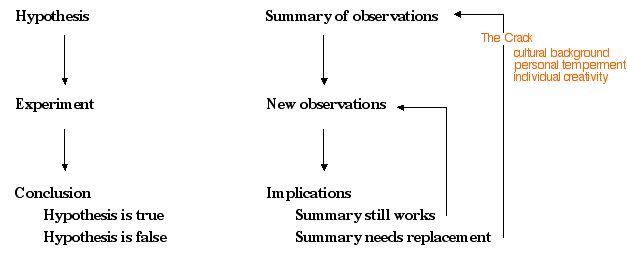Serendip is an independent site partnering with faculty at multiple colleges and universities around the world. Happy exploring!

Strong, but weakened by repetition
While reading Eli Clare there stood out to me many strong and moving images, especially those of his childhood; the rape, being able to move out of “disabled” classes in high school, graduating with a high school diploma and a college scholarship, the physical sacrifices the loggers made, how he worked alongside them loving the feeling of swinging an ax and wearing flannel and overalls. However as the pages on logging continued to mount, and the same description of his rape and the same remarks about high school and into college continued to appear again and again in chapter after chapter I found the potency of the words waning. I found myself only half paying attention and losing focus in the repetitive sections, saying to myself “I know, I already read this…” While I understand the need to not tell everything in chronological order, I wish he had trusted his readers to remember his sharing of experiences and then refer back to them rather than to retell again and again. I don’t know if the reason he did this was to draw as much pity from the readers as possible, to drill these life experiences into us, or some other reason entirely (repetition is mostly used as a persuasive writing technique so I don’t know if we could factor that angle in at all…) but for me it simply weakened the importance of many of his experiences because I simply got tired of reading about them.

Dressage
For this week's posting, I wanted to jump off of a topic that we seemed ready to talk about in class, but ran out of time. On the board when we left was a discussion of the New York Times article, with the names "Butler," "Foucault," and "Barad" listed. While we talked about Butler, I'm also interested in probing into the New York Times article through the diffractive apparatus of Wilchins' summary of Foucault.
In Wilchins' summary of Foucault, I was particularly interested in the idea of dressage: through a fairly grim process of repetition akin to that done by prisoners, we learn to behave and enact gender in a particular, societally accepted way. It seems to me that the therapists are advocating the same position on sexuality: through a dressage of sexuality, people attracted to the same sex (I am purposely refraining from using the words "gay" or "queer" for any idea of community that might annex) may be influenced to behave in a way that is in line with their religious beliefs. In this way, they become prisoners of desire; they must be taught by dogged repetition to be full members of their community by conforming to a "straight" sexual identity, if not a straight sexual orientation.






